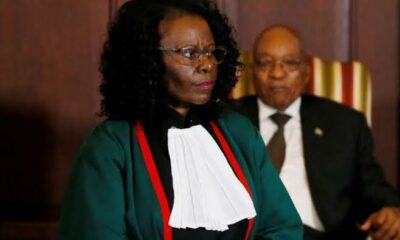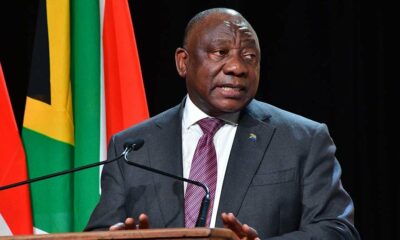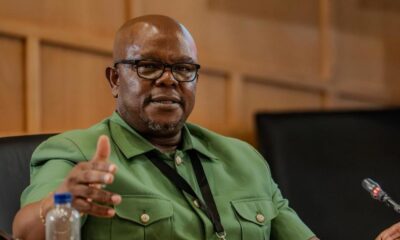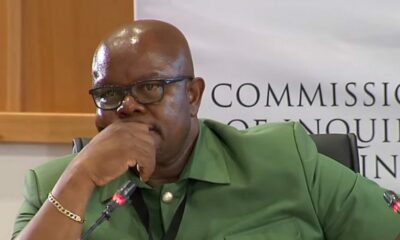News
ConCourt Shuts Down Zuma and MK Party’s Legal Bid Against Ramaphosa
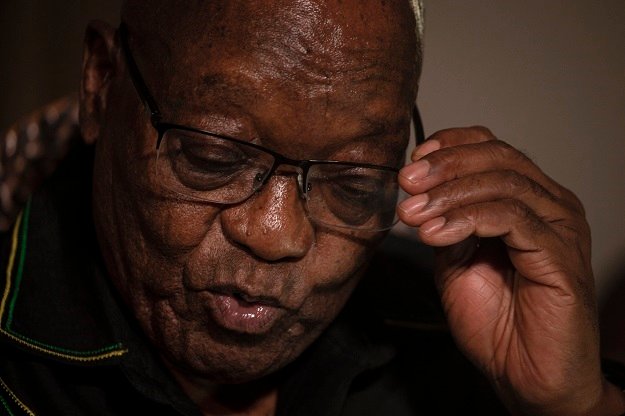
Zuma’s urgent application rejected as Ramaphosa moves forward with police ministry shakeup and new corruption probe
In a dramatic legal twist that once again puts former president Jacob Zuma at odds with the country’s highest court, the Constitutional Court has handed down a clear-cut ruling: no case, no hearing, no delay.
At exactly 2pm on Thursday, the apex court dismissed Zuma and the MK Party’s urgent bid to overturn President Cyril Ramaphosa’s recent executive decisions, dealing a significant blow to the party’s attempts to challenge the president’s authority amid growing political tensions.
What Sparked the Legal Showdown?
The MK Party, backed by Zuma, had rushed to the Constitutional Court with what they called an “urgent constitutional matter.” Their goal was to stop Ramaphosa’s temporary sidelining of Police Minister Senzo Mchunu, the appointment of Professor Firoz Cachalia as acting minister, and the establishment of a new commission of inquiry into alleged political interference in law enforcement.
The case stemmed from explosive claims made earlier this month by KwaZulu-Natal police commissioner Lieutenant General Nhlanhla Mkhwanazi, who publicly accused senior figures, including Mchunu and crime detection chief Shadrack Sibiya, of meddling in police work for political gain.
Ramaphosa’s response was swift: launch a probe, clear the decks, and bring in legal heavyweight and former judge Mbuyiseli Madlanga to lead the investigation.
The MK Party, however, cried foul—arguing the president had overstepped constitutional boundaries.
The Court’s Verdict: Not Our Problem
Justice Rammaka Mathopo, delivering the brief but decisive order, didn’t mince words.
“The application does not engage the court’s jurisdiction,” he said. “Direct access is refused. Costs are reserved. Reasons will follow later.”
In plain language, the Constitutional Court said it wasn’t the right venue for this case and that Zuma and the MK Party hadn’t made a strong enough argument to justify skipping the normal court process.
What Zuma and the MK Party Argued
Their legal team, led by Advocate Dali Mpofu, leaned heavily on Section 167(4) of the Constitution, which grants the Constitutional Court exclusive jurisdiction to decide whether the president has failed to fulfill a constitutional obligation.
Mpofu argued this was precisely such a case. He insisted Ramaphosa’s decisions were not only procedurally flawed but constitutionally invalid.
But it didn’t hold water.
Ramaphosa’s Defence: This is Executive Territory
Representing Ramaphosa, Advocate Kate Hofmeyr delivered a firm rebuttal. She pointed out that the president has broad powers to manage his cabinet, including placing ministers on leave and appointing acting ones during investigations.
“This power includes the lesser power of placing ministers on leave,” she said. “The wisdom of those choices is to be judged through the democratic process, not the courts.”
She also criticized the MK Party’s legal team for giving only “two paragraphs” in their founding affidavit to argue why this case belonged before the Constitutional Court. “This is an important constitutional question,” she added, “and they barely touched it.”
Reactions Outside Court: Disappointment and Defiance
MK Party spokesperson Nhlamulo Ndhlela voiced strong disappointment, telling reporters the decision was a “travesty of justice.”
“We are consulting with our legal team and national leadership,” he said, hinting at possible future legal action. “This issue is far from over.”
Zuma’s legal representative, Mpofu, echoed that sentiment, saying the former president was “shocked” by the outcome and wouldn’t rule out returning to court, perhaps a different one next time.
What This Means for Ramaphosa and the Commission
The court’s ruling essentially gives Ramaphosa the green light to continue with his clean-up operation. Firoz Cachalia is expected to be officially appointed as acting police minister, and the Madlanga-led commission will begin probing claims of political corruption and interference within the justice system.
This comes at a pivotal moment for the president, who is under pressure to reassert control and credibility over key institutions ahead of 2026’s local elections and amid a swirl of ANC infighting.
Bigger Picture: Zuma’s Courtroom Battles Continue
This case is just the latest chapter in Jacob Zuma’s long-running legal war with South Africa’s judicial system. From the State Capture Commission to numerous contempt and corruption charges, Zuma has built a political identity as both a populist and a courtroom warrior.
But Thursday’s loss is a strategic one, it underscores how limited the MK Party’s legal manoeuvring space may be when trying to challenge executive authority at the highest judicial level.
Conclusion: A Win for Stability, For Now
The ruling reaffirms the Constitutional Court’s role as a neutral arbiter of law, not politics. It also reinforces Ramaphosa’s authority to make leadership decisions, even controversial ones, without having to constantly defend them in court.
For Zuma and the MK Party, the message is clear: if you’re bringing a fight to the ConCourt, you better bring more than just headlines.
{Source: The Citizen}
Follow Joburg ETC on Facebook, Twitter , TikTok and Instagram
For more News in Johannesburg, visit joburgetc.com



